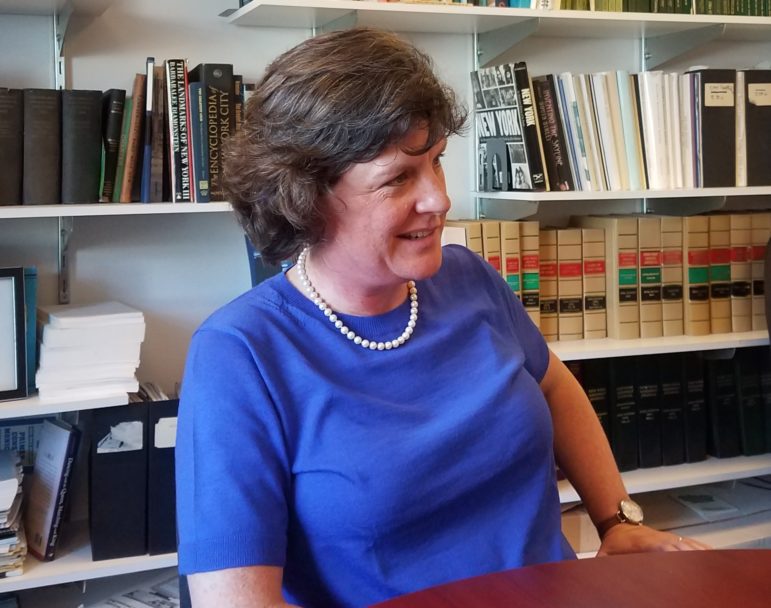
Jarrett Murphy
A labor lawyer turned politician, Miner is still deciding whether to run for governor this year.
Sheldon Silver has been convicted again. Ed Mangano awaits a verdict. Dean Skelos and Alan Kaloyeros await trial. In the wake of the conviction of longtime Andrew Cuomo aide Joe Percoco on corruption charges, there’s word of a new probe of a healthcare company that donated very generously to the governor’s campaign. And of course, there’s Eric Schneiderman, accused not of misusing his office but of serial physical abuse of women.
The wrongdoing (alleged or confirmed) of elected officials has been a talking point in many recent New York State elections but it seems an inescapable issue as campaign 2018 heats up. Former Syracuse Mayor Stephanie Miner told the Max & Murphy podcast on Tuesday that she is still deciding whether or not she’ll be part of that campaign. Candidate or not, her diagnosis of the problems that produce apparent widespread corruption in New York combines the typical analysis–that there’s too much money in politics–with the more interesting insight that decreasing voter turnout enhances the power that campaign cash wields.
Miner has been touted as a potential challenger to the governor since a fateful 2013 op-ed she wrote calling out Cuomo for failing to help cities. After two terms as mayor of Syracuse, she says she turned down offers to run for Congress or the state Senate, and she recently dismissed the race for attorney general. That leaves governor. Although the clock is ticking on time to raise money and gather signatures, and even as Cynthia Nixon begins to consolidate her hold on the Democratic left, Miner says she feels no particular urgency to decide whether to jump in or not.
While Miner has been a strong critic of the governor, she has not escaped criticism herself. As she prepared to leave office in December, Syracuse.com published a generally sour assessment of her tenure. “For long stretches of her administration, City Hall was tied up in fights that yielded only expense and delay,” it read. “It wasn’t just the governor. Miner tussled with the county executive, the city council, the district attorney and the city’s leading developer. She did not start every battle, but was ever a willing combatant.”
Miner defends her approach to governing. “The economic development projects that were heralded” and that she resisted “are now the subject of tremendous federal corruption trials. … We stood up and said this wasn’t right and we’re not going to be a willing participant in this.”
center>









One thought on “Max & Murphy: Former ‘Cuse Mayor Miner Sizes Up Possible Gov Run”
Many activists including me tried for some months to persuade Stephanie Miner to challenge Andrew Cuomo for governor. But if she jumps into the race at this late stage, all she will be doing is splitting the anti-Cuomo vote in the primary and helping Andrew win a third term. It’s too late, Stephanie!